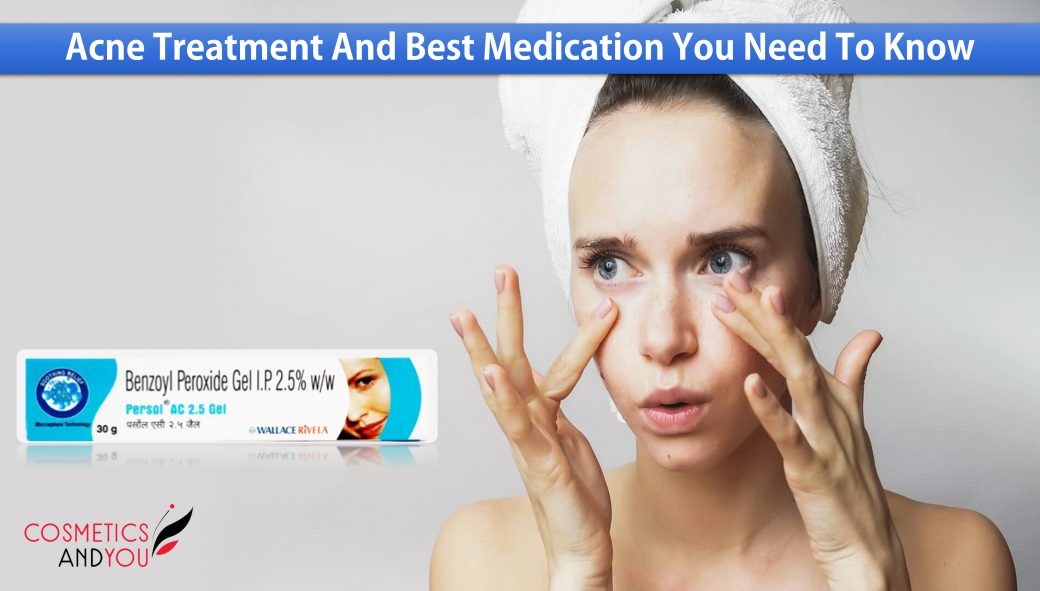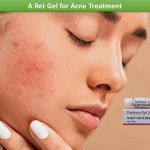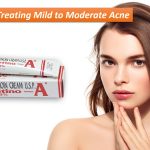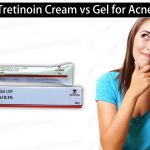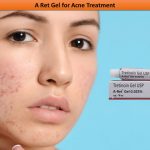Acne is a common skin disorder that is usually treatable. If you have acne, it is necessary to know more about it and about the treatments available to eliminate it.
Acne breakouts:
There are small sebaceous glands that lie just beneath the skin surface. These glands make sebum that keeps the skin smooth and supple. The tiny pores on the skin surface allow the sebum to come to the skin surface. Hairs grow through these pores too. Sebum in combination with hair and dead skin cells can clog the pores and lead to whiteheads and blackheads or acne.
During the teenage years, more sebum is created than when we are younger or older. This is due to the hormonal changes at the time of puberty. The more sebum the skin makes, the greasier it is likely to feel and the worse will be the acne.
Trapped sebum also creates an ideal condition for a germ called Propionate bacterium to thrive and multiply. Some bacteria generally live on the skin and cause no harm. However, when there are a large number of bacteria, it may cause the immune system to react and this can lead to inflammation. When inflammation develops, it can cause the surrounding skin to become red and the spots to become bigger and filled with pus. In certain cases, the pustules can become even bigger and lead to the formation of cysts and small nodules.
Acne can happen to adults too. Generally, hormonal changes happen either around the monthly menstrual cycle or during the menopausal shift. Stress and dietary imbalances can also lead to flare-ups.
Different acne treatments:
There are various topical preparations is available to treat acne. The aim of acne treatment is to clear the spots as much as possible and prevent scarring. There are different types of treatments that work in different ways. Your dermatologist is the best person to offer the right solution for your requirement, and their advice will depend on the type of your acne and its severity. Treatments can be in the form of topical solutions like A ret gel or tablets.
Benzoyl peroxide – It is a common topical treatment that comprises three actions – it destroys the germs, reduces the inflammation and helps to unclog blocked pores. The solution, therefore, works well to clear the inflamed spots and helps to get rid of whiteheads and blackheads.
- The compound works best if you wash the skin 20-30 minutes before usage.
- It may bleach bed linen, hair or clothes that come in contact with it. Therefore, you must be careful while using it.
- It can lead to mild skin irritation. If the skin becomes irritated, stop using the compound till the irritation goes away.
Retinoids – These are helpful to unplug blocked pores. They include tretinoin, adapalene, and isotretinoin which come in different brand names. These also have some effect in getting rid of inflammation. Therefore, they are often used when the acne is in the initial stage to unblock pores and treat whiteheads, blackheads and mildly inflamed spots. You will need a prescription to buy Tretinoin gel. The following may happen when you use a retinoid:
- You may develop skin peeling and skin redness. However, this generally settles over time.
- The acne can sometimes become worse before improving.
- It is recommended that you apply the product at night as your skin may be sensitive to sunlight.
- Some of the common side effects of using the cream include irritation, dryness, and burning of the skin.
- Retinoids can cause harm to unborn babies. It is, therefore, best to avoid it if you are pregnant or are trying to become so.
Topical antibiotics – There are several kinds of topical antibiotic preparations that you can use to treat acne. These help to decrease the number of bacteria and also get rid of inflammation. However, these do not have much effect on unplugging blocked pores. Therefore, these antibiotics are generally good at treating inflamed acne. However, the whiteheads and blackheads may remain.
You can buy topical antibiotics with a prescription. These may sometimes cause mild irritation, but generally cause fewer side effects than the other topical preparations. Your dermatologist may prescribe topical antibiotics in combination with other products. If you use these alone, it can increase the risk of the germ becoming used to the antibiotic and making the treatment less effective.
Azelaic acid – It is an effective alternative that works by unclogging blocked pores. Therefore, like retinoids, it is good at eliminating whiteheads and blackheads. It has an effect on destroying inflamed acne but maybe not as much as benzoyl peroxide or antibiotics.
Combinations of drugs – Some acne treatment preparations comprise a mixture of ingredients. For example, benzoyl peroxide in combination with a retinoid or an antibiotic. These may sometimes work better than either ingredient on its own.
No matter what treatment is used, it generally takes up to four weeks to notice any improvement. Some topical treatments may cause the skin to become dry. If this happens, it is best to use a water-based moisturizing cream to wash your face before applying the products.
Some Skin Care Tips and myths associated with acne:
It is essential to follow certain skincare tips while you are treating your acne. Avoid washing your face more than twice a day. Use mild soap and lukewarm water to wash your face and refrain from scrubbing too hard. Avoid abrasive soaps, cleansing granules, astringents, or exfoliating agents. Use a soft washcloth and fingers instead. Keep in mind, that excessive washing can lead to more inflammation and worsen your acne.
Acne Myths
While following a treatment plan for your acne, it can help to keep the following things in mind.
- Acne is caused by dirt and poor hygiene: it is not true; in fact, excessive cleaning of the skin may make it worse.
- Acne is another simple skin issue: It is not so, as it is caused by a complicated interaction of sebum, changing hormones, inflammation etc.
- Acne cannot be cured medically: This is not true as treatments work very well if used the correct way.
Once you start an acne treatment plan, it is important that you follow it regularly for at least 1 to 3 months to notice any improvement depending on the severity of the acne.

